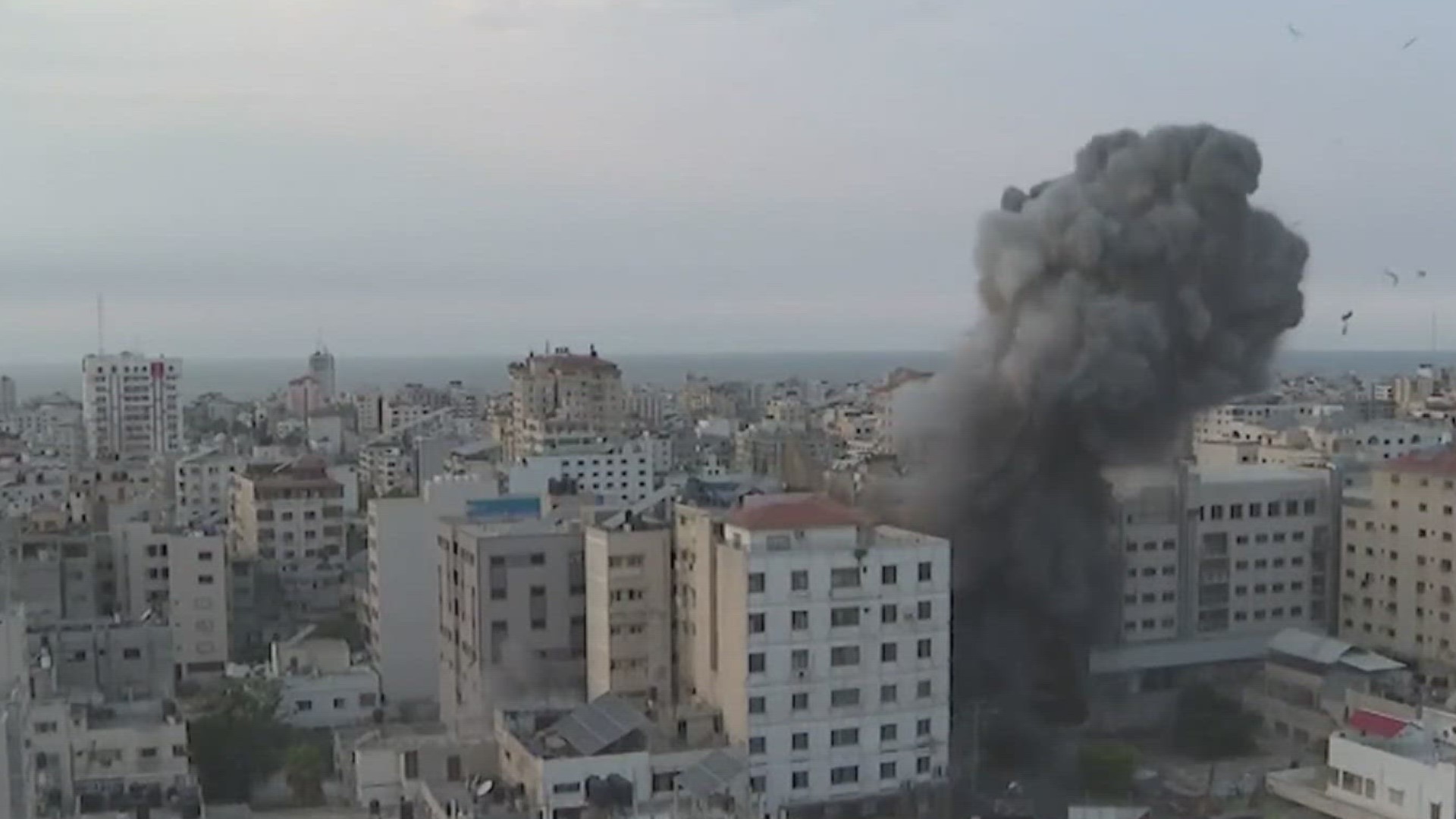HARRISBURG, Pa. — When Harrisburg native Rebecca Solomon planned her family's annual trip to Rishon LeZion, Israel, she anticipated a fun-filled trip celebrating the Jewish holiday of Sukkot. Fun turned to fear early Saturday morning.
"Around six in the morning, we woke up to the sounds of sirens," she said via Zoom. "I wasn't scared. Initially, I was just kind of more like alarmed, and the adrenaline was going through me."
Israel came under a surprise attack Saturday morning, as Hamas militants launched an attack in nearly two dozen locations. The Israeli government responded with airstrikes into the Gaza strip, and officially declared war on Sunday.
"It's very emotional, as a proud Jewish American, to come to Israel, and see what the Israelis are dealing with firsthand," Solomon, a former FOX43 reporter, said. "As you get further south to Gaza, you hear just these devastating tragic stories of what's going on down there."
Back in central Pennsylvania, Palestinian Americans Nabila Taha and Shareef Abdulrahman have also watched closely.
"Seeing some of the images first and foremost. You know, no one wishes this upon anybody," Abdulrahman said.
“We are concerned of what's happening," Taha said. "Our hearts and minds and prayers go to the people who are suffering over there, especially in Gaza."
Both Taha and Shareef Abdulrahman say the attack was not a shock to them given the tense history between Israelis and Palestinians, but they don’t want to see violence.
"We say we want peace, the other side says they want peace, and that's great," Abdulrahman said. "Let's show it. We can't just be people of words, we have to have action."
In Schuylkill County, Archbishop Abina Melchisdeck of the Palestinian Orthodox Church in America is calling for peace.
"We don't want to see innocent lives, people, the elderly, the children are being killed. We are not for that," Melchisdeck said. "We have to come to a healing someway, somehow."
The sides of the story
Though Solomon, Taha, Abdulrahman and Archbishop Melchisdeck all want to see the violence end, they opened up to different perspectives.
"Make no mistake, this group who committed this crime, Hamas, this terrorist group must be held accountable," Solomon said.
The violence that began Saturday has reportedly killed more than 1,000 and injured an additional 2,000 on both sides, according to Associated Press reports. Solomon chalks up the attacks on Israel to terrorism.
"This is not this should have nothing to do with land," Solomon said. "This this act of violence is so wrong, it's just, I can't even comprehend it in words."
Archbishop Melchisdeck referred to Hamas as terrorists, calling the attacks "horrific" and "evil."
But for many Palestinians, like Taha, Abdulrahman and the Archbishop, the tension and subsequent escalations are a direct result of land disputes and the limitations placed on Palestinians by the Israeli government.
Archbishop Melchisdeck says the ability to live and move within Israel is limited.
"The people in Israel have the right to leave, move around, go to Tel Aviv, Jerusalem, to all these places," he said. "As Palestinians, on our holidays or anytime, they cannot move from one place to the other."
He also explained that the issue is at its worst to those in the Gaza strip. The area has faced an Israeli-Egypt blockade since Hamas took control of the region in the mid-2000s.
"My heart, it goes for the people in Gaza. There are a lot of innocent and good people in Gaza," Abdulrahman said. "They have been in this occupation locked in a big prison outside, they cannot go nowhere."
Nabila Taha is an immigrant to the U.S. Many Palestinians, including some of her family, still feel without a home.
"My family are still, some of them are called refugees," she said. "They have no rights in any country."
Abdulrahman shared that his family owned thousands of acres of olive trees which are separated by an Israeli highway, and he says they cannot touch the land or trees on the Israeli side of the highway.
"If you're going to take my home, at least give me the living room," Abdulrahman said. "If we can just find a middle ground where we were allowed to have that and have peace at the same time, praise God."
The history between Palestine and Israel
Note: Information from this section is sourced from the The Council on Foreign Relations (CFR), an independent, nonpartisan member organization, think tank and publisher. Read its full account of the Israeli-Palestine Conflict here.
For decades, fighting between Palestinian groups and Israelis has been like a revolving door ever since 1947. Following World War II, the United Nations drafted the larger map below, dividing the land formerly known as the British Mandate of Palestine into Arab and Jewish states, with both sharing Jerusalem.


This led to the first Arab-Israeli conflict, as the two sides claimed the land as their own. Israel won, shaping the maps to what is more recognizable in present day, while displacing hundreds of thousands of Palestinians in the process.
Today, the conservative Israeli government shares control of the West Bank with the Palestinian Authority, run by the Fatah party. Hamas has controlled the Gaza Strip since a war with the Fatah in 2007.

